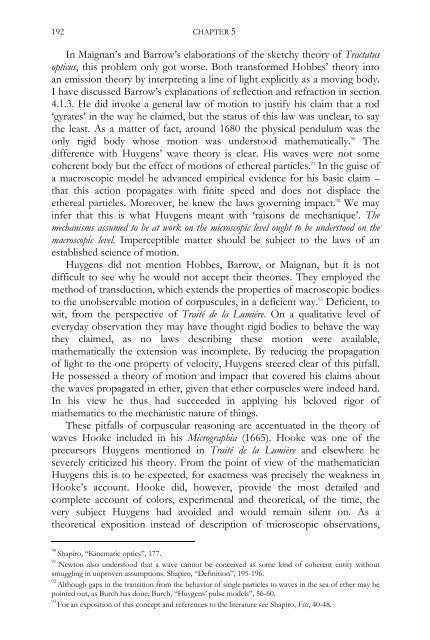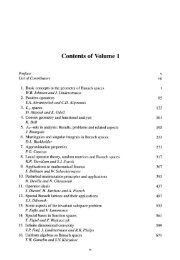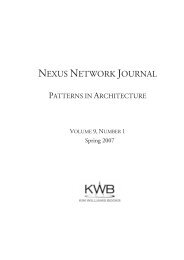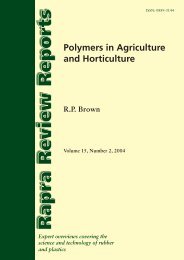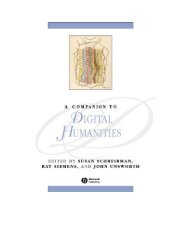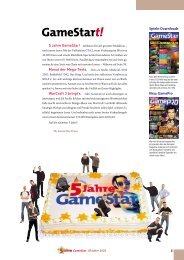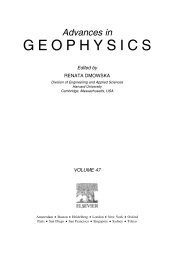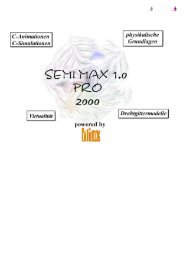Lenses and Waves
Lenses and Waves
Lenses and Waves
You also want an ePaper? Increase the reach of your titles
YUMPU automatically turns print PDFs into web optimized ePapers that Google loves.
192 CHAPTER 5<br />
In Maignan’s <strong>and</strong> Barrow’s elaborations of the sketchy theory of Tractatus<br />
opticus, this problem only got worse. Both transformed Hobbes’ theory into<br />
an emission theory by interpreting a line of light explicitly as a moving body.<br />
I have discussed Barrow’s explanations of reflection <strong>and</strong> refraction in section<br />
4.1.3. He did invoke a general law of motion to justify his claim that a rod<br />
‘gyrates’ in the way he claimed, but the status of this law was unclear, to say<br />
the least. As a matter of fact, around 1680 the physical pendulum was the<br />
only rigid body whose motion was understood mathematically. 90 The<br />
difference with Huygens’ wave theory is clear. His waves were not some<br />
coherent body but the effect of motions of ethereal particles. 91 In the guise of<br />
a macroscopic model he advanced empirical evidence for his basic claim –<br />
that this action propagates with finite speed <strong>and</strong> does not displace the<br />
ethereal particles. Moreover, he knew the laws governing impact. 92 We may<br />
infer that this is what Huygens meant with ‘raisons de mechanique’. The<br />
mechanisms assumed to be at work on the microscopic level ought to be understood on the<br />
macroscopic level. Imperceptible matter should be subject to the laws of an<br />
established science of motion.<br />
Huygens did not mention Hobbes, Barrow, or Maignan, but it is not<br />
difficult to see why he would not accept their theories. They employed the<br />
method of transduction, which extends the properties of macroscopic bodies<br />
to the unobservable motion of corpuscules, in a deficient way. 93 Deficient, to<br />
wit, from the perspective of Traité de la Lumiére. On a qualitative level of<br />
everyday observation they may have thought rigid bodies to behave the way<br />
they claimed, as no laws describing these motion were available,<br />
mathematically the extension was incomplete. By reducing the propagation<br />
of light to the one property of velocity, Huygens steered clear of this pitfall.<br />
He possessed a theory of motion <strong>and</strong> impact that covered his claims about<br />
the waves propagated in ether, given that ether corpuscles were indeed hard.<br />
In his view he thus had succeeded in applying his beloved rigor of<br />
mathematics to the mechanistic nature of things.<br />
These pitfalls of corpuscular reasoning are accentuated in the theory of<br />
waves Hooke included in his Micrographia (1665). Hooke was one of the<br />
precursors Huygens mentioned in Traité de la Lumière <strong>and</strong> elsewhere he<br />
severely criticized his theory. From the point of view of the mathematician<br />
Huygens this is to be expected, for exactness was precisely the weakness in<br />
Hooke’s account. Hooke did, however, provide the most detailed <strong>and</strong><br />
complete account of colors, experimental <strong>and</strong> theoretical, of the time, the<br />
very subject Huygens had avoided <strong>and</strong> would remain silent on. As a<br />
theoretical exposition instead of description of microscopic observations,<br />
90 Shapiro, “Kinematic optics”, 177.<br />
91 Newton also understood that a wave cannot be conceived as some kind of coherent entity without<br />
smuggling in unproven assumptions. Shapiro, “Definition”, 195-196.<br />
92 Although gaps in the transition from the behavior of single particles to waves in the sea of ether may be<br />
pointed out, as Burch has done. Burch, “Huygens’ pulse models”, 56-60.<br />
93 For an exposition of this concept <strong>and</strong> references to the literature see Shapiro, Fits, 40-48.


